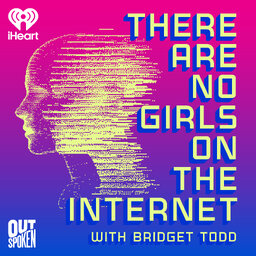Facebook makes money off of harming girls: Stuff Mom Never Told You
Frances Haugen’s is just the latest former Facebook employee to blow the whistle on the platform’s harms. Bridget talks to Anney and Sam of the Stuff Mom Never Told You podcast about what Facebook knew and why whistleblowing is an identity issue.
The Wall Street Journal’s Facebook Files: https://www.wsj.com/articles/the-facebook-files-11631713039
Learn more about your ad-choices at https://www.iheartpodcastnetwork.com
In 1 playlist(s)
There Are No Girls on the Internet
Marginalized voices have always been at the forefront of the internet, yet our stories often go over…Social links
Follow podcast
Recent clips

Amazon Ring Super Bowl Ad BACKFIRES; YouTubers Exploit Women's Arrest Videos; Salesforce CEO ICE "Joke" – NEWS ROUNDUP!
1:10:54

University of Oklahoma Trans Instructor's Attorney Still in the Fight After Appeal Denied
47:18

Should You Trust Andrew Huberman? What CBS's Epstein Disaster Reveals About Wellness Gurus
1:32:51
 There Are No Girls on the Internet
There Are No Girls on the Internet